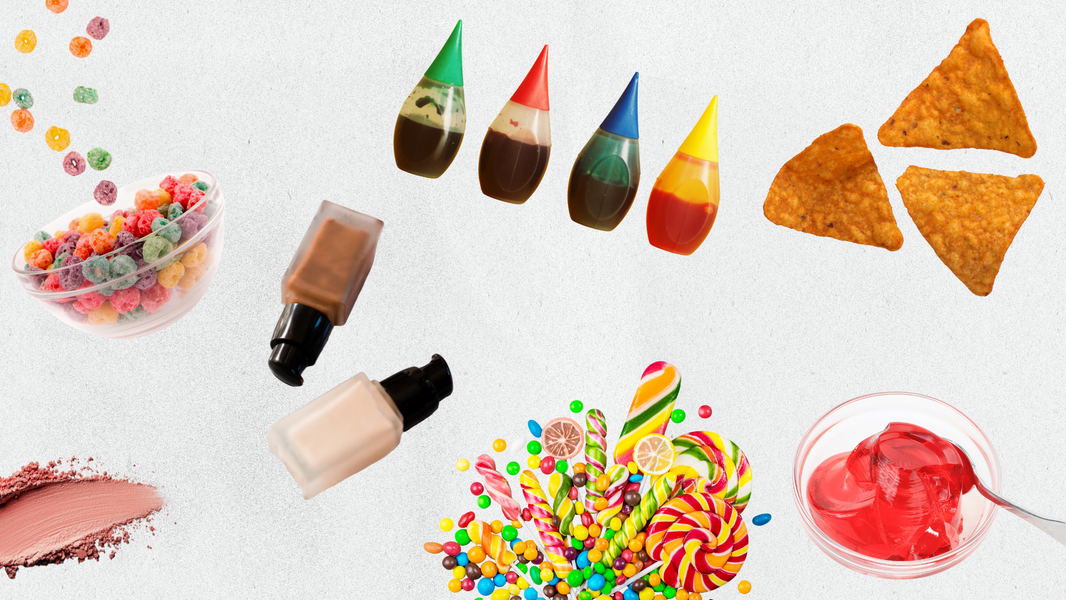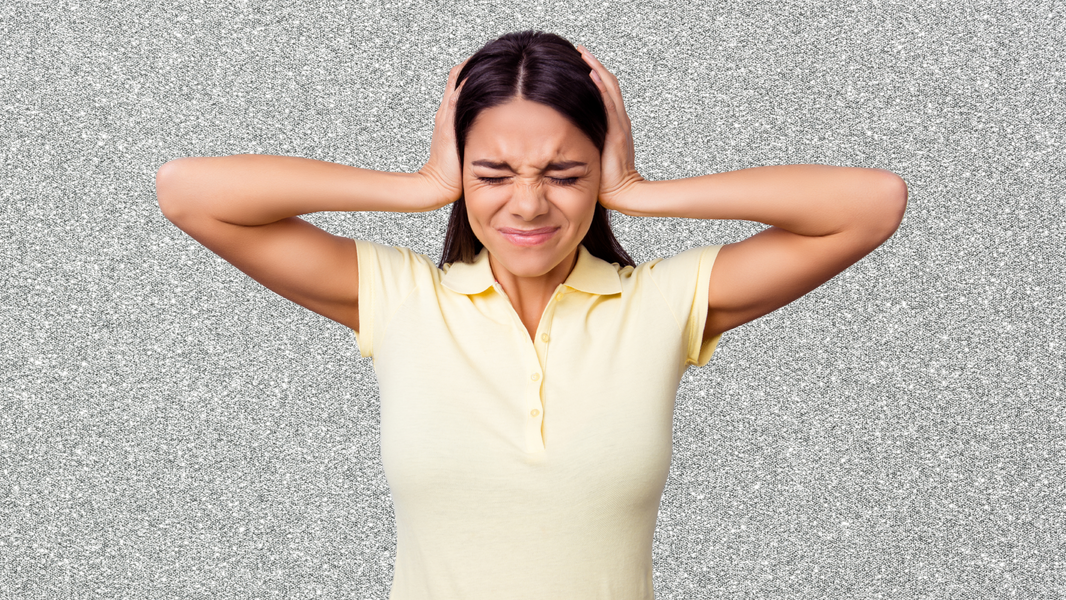Is the “Energy Imbalance” explanation of obesity settled science?
If you’ve ever dieted before, you’re probably familiar with this equation: to lose weight, you have to burn more calories than you eat. This is considered the commonsense foundation for weight gain and weight loss science.
What if I told you, in this case, 2 + 2 might NOT equal 4?
Calories in vs. calories out, also known as the Energy Balance Hypothesis (EBH), claims to explain why people become overweight. It’s been the leading theory for so long that it’s practically accepted as a law of nature.
Here’s the truth: The Energy Balance Hypothesis leaves essential questions about fat storage and weight gain unanswered.
We’ll try to find some answers in this discussion. Some of the questions we’ll be asking are:
- Does the Energy Balance Hypothesis accurately explain how we gain and lose weight?
- If the EBH was accurate, why is losing weight so hard?
- Do certain types of food and flavor trick us into eating more calories?
- If the EBH isn’t the answer, then what is?
Keep reading to see if all that calorie counting may be holding you back!
Positive Energy Balance: Explanation, or just obvious?
The EBH explains weight gain this way: people become overweight because they eat more calories than they burn. But think of your own experience. Is that always true?
There are quite a few exceptions to this rule, but let’s focus on one- growing children.
If the Energy Balance Hypotheses were a “law of nature,” shouldn’t ALL kids who eat excess calories have significant fat stores? Kids, especially young children, often eat more calories than they expend. But, until high sugar foods and drinks became staples in kids’ diets, it was unusual for children to become obese.
What’s happening in child development that differs from other life stages?
I’ll give you a hint, what do you blame for teenage mood swings?
HORMONES!
Could hormones explain why some people store excess calories as fat?
Takeaway
The EBH treats calorie intake and weight gain as simple math. But, there are many situations in nature where excess calories don’t automatically turn into fat.
Weight Gain: physical symptom or personal failure?
There’s another big problem with the Energy Balance hypothesis. It takes a physical health problem and explains it as a behavioral disorder or a character flaw. Consider how most of our culture views overweight people, maybe how YOU view them: gluttonous, lazy, and no self-control.
This combination of oversimplification and personal prejudice has been disastrous for public health. Encouraging “calorie control” hasn’t dented the obesity epidemic. And healthcare professionals are off the hook- they can’t FORCE people to change their behavior.
Consider this: in the 1960s and 1970s, 12% of American adults qualified as obese. In 2020, the number of American adults that met the medical definition of obesity was 40%.
Can personality and behavioral disorders explain this incredible jump? Or is it something more?
In 1946, researchers named the hypothalamus, one of the brain’s structures, the control center for overeating behavior. They determined this by damaging the hypothalamus in rats and watching their behavior change. They concluded this because rats with damaged hypothalamus’ overate and gained weight.
Then the researchers tried something different. They didn’t let the rats overeat. They found that, given the same amount of food, the rats with the damaged hypothalamus STILL gained weight, even when they could not overeat.
What does the EBH have to say about that? Not much.
This phenomenon was a mystery until 1994 when researchers studying specially-bred obese mice identified the hormone leptin and its role in fat storage.
They found that leptin was responsible for two things:
- Communicating to the central nervous system (the brain) that the body had sufficient energy to regulate hunger
- When leptin is absent, or the hypothalamus doesn’t respond to leptin, the body will store fat, even in the absence of excess calories.
Furthermore, they observed that mice born with an “obesity” gene showed a reduced response to leptin.
So, there you have it. Fat storage isn’t just a function of calories. Hormones play a significant role that has nothing to do with calories.
Takeaway
The discovery of the hormone leptin showed that hormones could impact how calories are stored, regardless of the number of calories eaten.
Insulin Interference
Leptin is just one hormone, though. Other hormones have an outsized influence on weight gain and fat storage. Insulin is where the Energy Balance hypothesis truly runs out of gas.
Because it’s responsible for processing carbohydrates (sugar) and regulating fat storage, researchers who discovered the impact of insulin developed their own theory of weight and nutrition. They named it the Carbohydrate-Insulin Hypothesis (CIH).
The CIH theorizes that fat storage is less a function of too much energy and more a process of the metabolic activity of the calories eaten. In short, not all calories are created equal. Some food’s calories are absorbed differently by the body. This isn’t new information, nutritionists have given this a name- the Glycemic Index.
The Glycemic index (GI) measures how food affects your blood sugar. It turns out that, regardless of how many calories they contain, some foods can have a more dramatic effect on your blood sugar than others. High GI food will cause a quick, high spike in your blood sugar, whereas lower GI food causes a lower and slower rise in blood sugar.
The Glycemic Index is primarily a function of fiber, where the sugar in the food is locked up.
Let’s use an apple as an example. You can eat an apple or drink half a glass of soda, and your blood sugar will rise higher and faster with the glass of soda. These two foods have the same amount of calories and carbohydrates on the surface.
But, because your digestive system has to break down the fiber in the apple to reach the sugar, it takes longer for those carbohydrates to reach your bloodstream, and insulin responds more effectively to the amount of sugar from the apple.
What does this have to do with fat storage and weight gain?
Insulin is responsible for processing your blood sugar. When you get a big dose of blood sugar, your body releases a lot of insulin, which tells your cells to bring in the glucose, and your liver to start storing fat.
Here’s where things get tricky. Because high-GI foods give you such a blood sugar spike, resulting in a hefty dose of insulin, your body processes all the blood sugar before using up all the insulin.
The excess insulin is looking for blood sugar that isn’t there.
What happens next? The body panics and puts energy sources on lockdown. In addition to this, your body signals that you NEED more sugar, causing carb cravings. So not only is your body encouraging you to take in more calories, but it’s not letting them go.
This hormonal imbalance leads to more fat accumulation and makes it harder to burn the stored fat.
Takeaway
High-carb foods have an impact on our insulin response. Eating too many high-carb, low-fiber foods can result in constant, unhealthy insulin levels and cause cravings for carbohydrates and storage of fat.
A Betr Balance
Where does Betr stand on this argument? As usual, we believe in doing what your body is designed to do. Betr also believes in doing what we have seen work for thousands of our members.
This issue that we’ve seen with calorie counting is sustainability. Many people can lose weight by diligently counting calories for weeks or months. But, in our experience, the strain of constantly weighing and measuring food and the challenge of battling daily cravings make lifelong calorie counting unsustainable.
That’s why Betr steers clear of counting calories and, instead, focuses on eating foods that will encourage your body to do the healthy thing with those calories!
It’s not ALL about the food, though. The foundation of Betr’s protocol is healing your gut microbiome, the hundreds of trillions of bacteria that naturally live in your digestive system and support healthy functioning throughout your body.
The calorie counters do have something right about “hyperpalatable foods.” Many of these foods are pre-packaged snacks made with excess fat, salt, sugar, and additives. The problem isn’t that these foods taste good (food should taste good, right?). These foods disrupt the gut microbiome, cause inflammation, and put your body under inflammation and stress.
When battling inflammation, rather than focusing on getting your nutrition where it needs to go, your body goes into “panic mode” rather than focusing on getting your food to the right place. It holds on to all the calories it can to fight against the threat of stress and inflammation.
Betr’s first step is to heal your microbiome with nutritious, anti-inflammatory foods. Once healed, your gut bacteria can reverse inflammation and focus on making sure the calories go where you really need them!
We don’t recommend you count calories, measure macros, or weigh food. When you get the inflammation out of the way, you can learn to listen to your body. Then, calories become a non-issue. You eat what you need to when you need to. We call it “struggle-free” weight loss. You should try it!
Takeaway
Instead of counting calories, Betr focuses on healing the gut microbiome with delicious, natural, anti-inflammatory food. This protocol heals inflammation and frees up your gut bacteria to support balanced hormone levels. Your calories go to the right place- your energy and health!
Conclusion
We’ve poked quite a few holes in the Energy Balance Hypotheses, but here’s what you should remember:
- The EBH treats calorie intake and weight gain as simple math. But, there are many situations in nature where excess calories don’t automatically turn into fat.
- Hormones, like leptin, impact how calories are stored, even when the amount of calories eaten isn’t “excessive.”
- High-carb foods have an impact on our insulin response. Eating too many high-carb, low-fiber foods can result in constant, unhealthy insulin levels and cause cravings for carbohydrates and storage of fat.
- Instead of counting calories, Betr focuses on healing the gut microbiome with delicious, natural, anti-inflammatory food. This protocol heals inflammation and frees up your gut bacteria to support balanced hormone levels. Your calories go to the right place- your energy and health!






